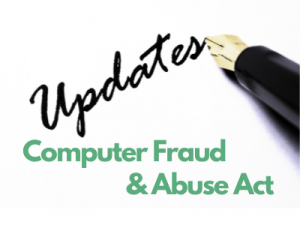A defendant’s view from the trenches of federal criminal court
This post is originally published to Substack. You can read and follow us there. https://torekeland.substack.com/p/guilty-until-proven-innocent
“Everywhere you turn there’s some caveat that’s biased against the defendant,” says the Firm’s new Associate Michael Hassard. This isn’t news to criminal defense lawyers, this moment strikes us all. Mike was learning about one of the more blatant biases: “Jencks,” the nickname for a McCarthy-era federal law that allows prosecutors to withhold witness statements until after their witness testifies. The alleged policy behind it is to help the defense by requiring the government to produce witness statements but the practical effect of not getting testifying witness statements until after a witness’s direct testimony is to sandbag the defense. A good defense attorney knows how to improvise on the fly in court, but there’s no substitute for a calm study of the evidence outside of the courtroom.
In practice, Jencks isn’t an issue most of the time because courts order the production of Jencks material pretrial, to avoid having to grant the defense a continuance while they digest the material. Nonetheless, it exists, and prosecutors will if they can try and use it tactically.
Jencks is hopelessly outdated, with its horse-and-buggy vision of a trial that is quaint in the face of a 21st-century computer crime trial involving algorithmic and cryptographic expert evidence. It’s one of the more blatant procedural biases against criminal defendants.
The cumulative effect of these types of blatant and hidden biases in the system is a primary reason our federal criminal justice system has become an unconstitutional inquisitorial plea grist mill. One where the burden of proof is on the defendant to prove their innocence.
“It’s the defendant’s burden to prove he’s innocent.” Those words were spoken by a federal prosecutor to a federal judge in a federal criminal computer trial I represent the defendant in. In the prosecutor’s defense (can’t help it I’m a defense lawyer) he was stating this in the context of trying to get us to engage in plea negotiations that we weren’t interested in. And with less than two percent of criminal cases going to trial and ninety percent ending in a guilty plea (the other eight percent get dismissed) he was merely stating the truth.
Our Constitution mandates that the Government has the burden of proving guilt beyond a reasonable doubt but the reality is the opposite. The prosecutor’s Freudian slip voices what our federal criminal justice system now is: an inquisitorial system of justice with a shadow body of law – unnoticed and untaught in the law schools – where innocent people are forced to plead guilty because they can’t afford the astronomical cost of a trial resulting from gross inefficiencies and inequities in the system.
It’s an unjust system, one that places an emphasis on the number of convictions rather than innocence, and one in which prosecutors aren’t held accountable for their mistakes and bad behavior. Once a defendant pleads guilty no one cares about the rules of evidence; sentencing hearings are often evidentiary clown shows. Before I became a criminal defense lawyer it never occurred to me that our justice system was this flawed and biased procedurally. Racial and class prejudice is obvious and ever-present, but I expected it to at least be procedurally fair on its face. But it’s not, and after ten years as a federal criminal defense lawyer, the first thing I tell new clients is that the faster they accept the fact that the system is unfair and irrational the quicker they’ll come to terms with it.
I can’t in good conscience remain silent about it anymore. Particularly when I look at what’s being taught in law schools and spewed on tv as authoritative. Most of those people mean well, but most either have no experience with what they’re talking about or are the ubiquitous federal prosecutor bathed in the light of the cult of DOJ. So, I’m going to start speaking out about it and argue that more trials, not less, are the solution to the institutionalized inequities of the federal criminal justice system.
Over the next three months, I’m going to take you through the process of preparing for a couple of federal criminal trials. From the defendant’s point of view. The posts will be down and dirty, so to speak, because they’re going to be typed hastily in between trial prep sessions, like this one. My hope is to educate people on the current injustices of our justice system – it’s not hard to see once it’s pointed out. Join me.




